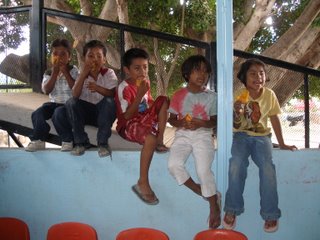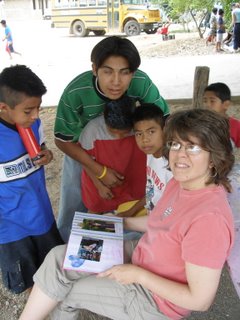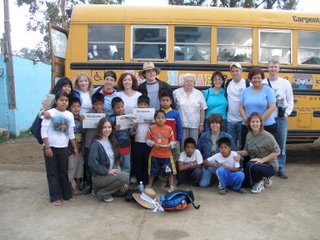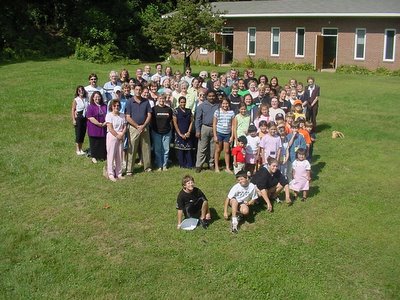
That tune by James Taylor has been running through my head ever since I got back. When our group first entered the U.S. in Houston, it felt like a foreign country: all the fast food, shops, cell phones, and fast pace. Now that I am in my home again I still feel as though I am a foreigner, a stranger in my own life. I am not the same person I was when I left. I once read that "the truth will indeed set you free, but first it will shatter the safe, sweet way you live." I have never known that to be more true than now.
Even though I am exhausted, physically and emotionally, from this past week, I miss the children and their patience with this gringa who speaks Spanish un poco; I miss the little store down the bumpy dirt road with fresh vegetables, those sweet yellow mangoes, and the family whose lives depend on it; I miss playing the never-ending Uno game with Luiz and Luz and others and their patois sign language arguments over who is cheating; I miss the little girls I met at the garbage dump and wish I had more Spanish so I could listen to them; I miss the quiet walks through the village at sunrise, broken by the sounds of roosters and dogs.

I have stories to tell; I'm just not ready to tell them. I have so much emotion, so much meaning inside; I just don't know yet how to live my life with them. I know my life and how I live it must change. I'm still praying and waiting. I have no doubt that God is leading me; I just don't know toward which step, but it is already difficult to remain empty, to not fill and cover these feelings, to empty myself of that which I do not need. I know that in order to make music, a drum, a flute, any instrument must be empty; that we have no use for love if we are full and content; that true compassion requires sacrifice and humilty.
One of the Five Remembrances of Buddhism says that all we have are our actions. Everything else is temporal. I pray that my present actions, and those that I choose, may be worthy of the experiences of the previous week.
More to come in the days and weeks ahead...



